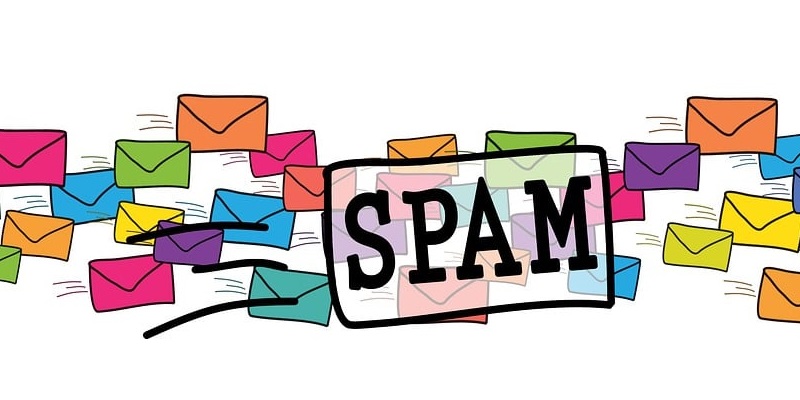In the digital age, email remains a powerful tool for marketing and communication. However, the increasing prevalence of spam and unwanted emails led to the establishment of the CAN-SPAM Act in 2003. The primary objective of this legislation is to protect consumers from deceptive and unsolicited commercial emails. By adhering to the requirements outlined in the CAN-SPAM Act, businesses can maintain a credible online presence while respecting the privacy and preferences of their recipients.
Explanation of the CAN-SPAM Act requirements for commercial email messages
The CAN-SPAM Act mandates that all commercial email messages must contain a valid physical or mailing address for the sender. This requirement ensures transparency and accountability, allowing recipients to easily identify the source of the email. By including a legitimate address, businesses can establish trust with their customers, ultimately improving their brand reputation.
Requirement for a clear and concise subject line
To prevent misleading or deceptive practices, the CAN-SPAM Act requires commercial emails to have a clear and concise subject line. This guideline ensures that recipients have a good understanding of the content and purpose of the email before opening it. By crafting subject lines that accurately reflect the email’s content, businesses can not only comply with the law, but also enhance their email open rates and engagement.
Inclusion of an opt-out mechanism for recipients to unsubscribe
The CAN-SPAM Act advocates for the inclusion of an opt-out mechanism in all commercial emails, making it easy for recipients to unsubscribe and manage their email preferences. Businesses must provide clear instructions on how to unsubscribe, and once a recipient opts out, the sender has ten business days to honor the request. Complying with these requirements demonstrates respect for recipients’ choices and preferences while also reducing the likelihood of being flagged as spam.
Labeling of emails as advertisements
To maintain transparency and prevent misleading practices, the CAN-SPAM Act requires that commercial emails be labeled as advertisements where applicable. Clearly identifying an email as an advertisement helps recipients discern between promotional content and personal or transactional emails. While it may seem counterintuitive to label emails as advertisements, this practice builds trust and prevents potential confusion.
Ensuring emails are truthful and not misleading
One of the fundamental requirements under the CAN-SPAM Act is that all commercial emails must be truthful and not misleading. This means that businesses must avoid deceptive subject lines, misleading headers, false claims, and misleading sender information. By maintaining honesty and accuracy in email communications, businesses can establish long-term trust with their audience.
The importance of adhering to CAN-SPAM laws to avoid penalties and fines
Complying with the CAN-SPAM Act is not only about ethics and maintaining a positive reputation, but also about avoiding severe penalties and fines. Violating the requirements outlined in the act can result in substantial consequences, with penalties reaching up to $43,792 per email sent in violation. Additionally, non-compliance can damage a company’s reputation, leading to customer distrust and potential loss of business. Therefore, it is crucial for businesses to understand and adhere to the provisions of the CAN-SPAM Act to protect themselves from legal repercussions and maintain successful email marketing campaigns.
Familiarize yourself with the provisions of the CAN-SPAM Act
To ensure compliance, it is essential to familiarize yourself with all the requirements of the CAN-SPAM Act. Regularly review the legislation to stay up to date with any changes or updates that may affect your email marketing practices.
Ensure that all email addresses are obtained legally and with consent
Only send commercial emails to recipients who have explicitly expressed consent to receive them. Avoid purchasing or using email lists without proper permission. Implement robust opt-in processes to ensure that subscribers willingly provide their email addresses.
Include a clear and prominent unsubscribe option
Make it easy for recipients to unsubscribe from your email list by prominently featuring an unsubscribe link or button. Process all unsubscribe requests promptly within the mandated ten-business-day timeframe.
Keep email content truthful, relevant, and non-deceptive
Craft email content that is relevant, informative, and aligned with recipients’ expectations. Ensure that subject lines accurately reflect the content within the email to maintain transparent and honest communication.
Honor unsubscribe requests promptly
Act upon unsubscribe requests within the stipulated timeframe. It is vital to build trust by promptly removing recipients who no longer wish to receive your emails. Failure to honor opt-out requests can result in legal consequences.
Regularly monitor and update your email lists
Regularly review your email lists to ensure they are up to date and free from invalid or inactive addresses. Regular list maintenance helps reduce bounce rates, increase deliverability, and maintain compliance with CAN-SPAM Act requirements.
Seek legal advice if unsure about compliance
If you have any doubts about achieving compliance with the CAN-SPAM Act, seek legal counsel. A qualified attorney can provide tailored guidance based on your specific business and industry, contributing to the effectiveness and legal compliance of your email marketing efforts.
The CAN-SPAM Act serves as a crucial framework for businesses engaged in email marketing. Understanding and adhering to the provisions of the act allows businesses to send effective, impactful, and compliant email marketing campaigns. By prioritizing transparency, honesty, and recipient preferences, businesses can cultivate a positive reputation, maintain customer trust, and harness the full potential of email as a marketing tool.

